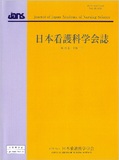Japanese
English
- 販売していません
- Abstract 文献概要
- 参考文献 Reference
要旨
目的:腎移植患者の自己管理行動がQOLと生体データと医療費に及ぼす影響を1年間の前向きコホート研究で明らかにする.
方法:腎移植患者225名に,自記式質問紙調査を実施した.自己管理行動の評価に腎移植患者自己管理尺度,健康関連QOLの評価にSF-12を測定した.電子カルテデータより,分析対象者の基本属性と生体データを把握し,レセプトデータの診療報酬請求情報から医療費を算出した.
結果:分析対象者132名のうち,役割/社会的QOL得点(F(1, 50) = 14.85, p < .001)とトリグリセリド 値(F(1, 61) = 9.83, p < .001)において自己管理行動と時期の交互作用を有意に認めた.医療費では,自己管理高群が有意に外来行為明細点数料を削減していた(F(1, 123) = 4.06, p = .044)が,外来医療費総計と医療費総計では有意な差はなかった.
結論:腎移植患者の適切な自己管理行動がQOLの向上と生体データの維持に効果を及ぼすことが示唆された.
Aim: The purpose of this study was to clarify the effects of self-management behavior, quality of life (QOL), biometric data, and medical costs on kidney transplant patients in a 1-year prospective cohort study.
Methods: The participants were 225 patients who underwent kidney transplantation. Selfmanagement behavior was measured using the self-administered Kidney Transplant Selfmanagement scale (Japanese version), and health-related QOL was examined using Medical Outcomes Study 12-Item Short-Form Health Survey. Participant characteristics and biometric data were obtained from the patients' electronic medical record data, and medical costs were calculated from medical fee billing information (EF files).
Results: Among the 142 participants whose data were analyzed, the interaction of selfmanagement behavior and time was identified as significant in Role/Social component summary QOL score (F(1, 50) = 14.85, p < .001) and Triglyceride (TG) value (F(1, 61) = 9.83, p < .001). Regarding medical expenses, the high self-management group had reduced outpatient medical expenses (F(1, 123) = 4.06, p = .044), but there was no significant difference in the total outpatient and total medical costs.
Conclusion: The results suggested that appropriate self-management behavior of kidney transplant patients had a positive effect on quality of life, biometric data.
Copyright © 2020, Japan Academy of Nursing Science. All rights reserved.


